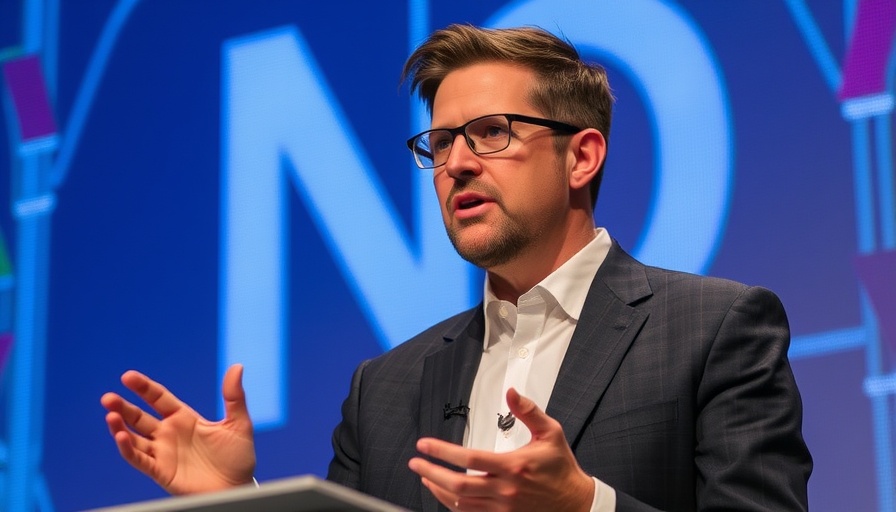
Keir Starmer's Vision of a Tech-Driven Future
Exciting developments in the realm of technology are unfolding as UK Prime Minister Keir Starmer delivered a compelling address at London Tech Week. His message was clear: technology, particularly artificial intelligence, holds the potential to create a "better future" for everyone. Starmer's vision extends beyond innovation; he envisions a society where technology not only enhances public services but also lightens the economic burdens on families across the nation.
How AI Can Transform Our Everyday Lives
Starmer laid out ambitious plans for bolstering AI infrastructure, proposing the introduction of a new AI tool designed to make the planning system more efficient. This tool, named “Extract”, powered by Google’s cutting-edge Gemini AI model, aims to streamline planning applications, reducing the bureaucratic red tape that has long stymied development. Moreover, the Prime Minister announced an impressive £1 billion funding initiative aimed at improving the essential components of AI systems — from microchips to cabling. These advancements could translate into faster decisions on local housing projects, enabling communities to thrive.
Investing in Our Workforce's Future
Recognizing the crucial role of education in adjusting to technological advancements, Starmer introduced “TechFirst,” a £187 million initiative focused on educating the upcoming workforce in AI skills. This program is aimed at preparing 7.5 million UK workers for jobs that will increasingly require AI knowledge. It is essential that we equip students and workers alike with the understanding of AI fundamentals, machine learning basics, and artificial intelligence concepts to ensure they thrive in a rapidly evolving economy. Starmer’s commitment is designed to alleviate fears about job displacement by emphasizing the creation of new roles that AI will generate.
Building Trust Amidst Change
In addressing public concerns surrounding AI, Starmer emphasized the importance of trust. As AI technologies emerge, it is natural for some to worry about their future, especially regarding job security. Starmer argues that AI is not here to replace human efforts but to enhance our capabilities as individuals and communities. By looking parents in the eye and confidently asserting that these technologies can indeed support their families’ futures, Starmer hopes to diffuse skepticism and build enthusiasm for the potential of AI in everyday life.
Embracing the Future Together
The dialogue around AI is evolving, inviting questions about ethics, societal impacts, and new opportunities. The UK stands at the forefront of AI research and development, and it is critical for all citizens to engage with the changes on the horizon. Learning AI, understanding its principles, and exploring its applications are vital steps toward embracing a future enriched by technology. As we tread this path, let’s make informed decisions and encourage discussions about AI in society.
At this pivotal moment, ask yourself: How can you participate in this technological transformation? Whether you’re a budding developer, an industry professional, or simply a tech enthusiast, understanding AI fundamentals can empower you to take an active role in shaping the future.
 Add Row
Add Row  Add
Add 




Write A Comment